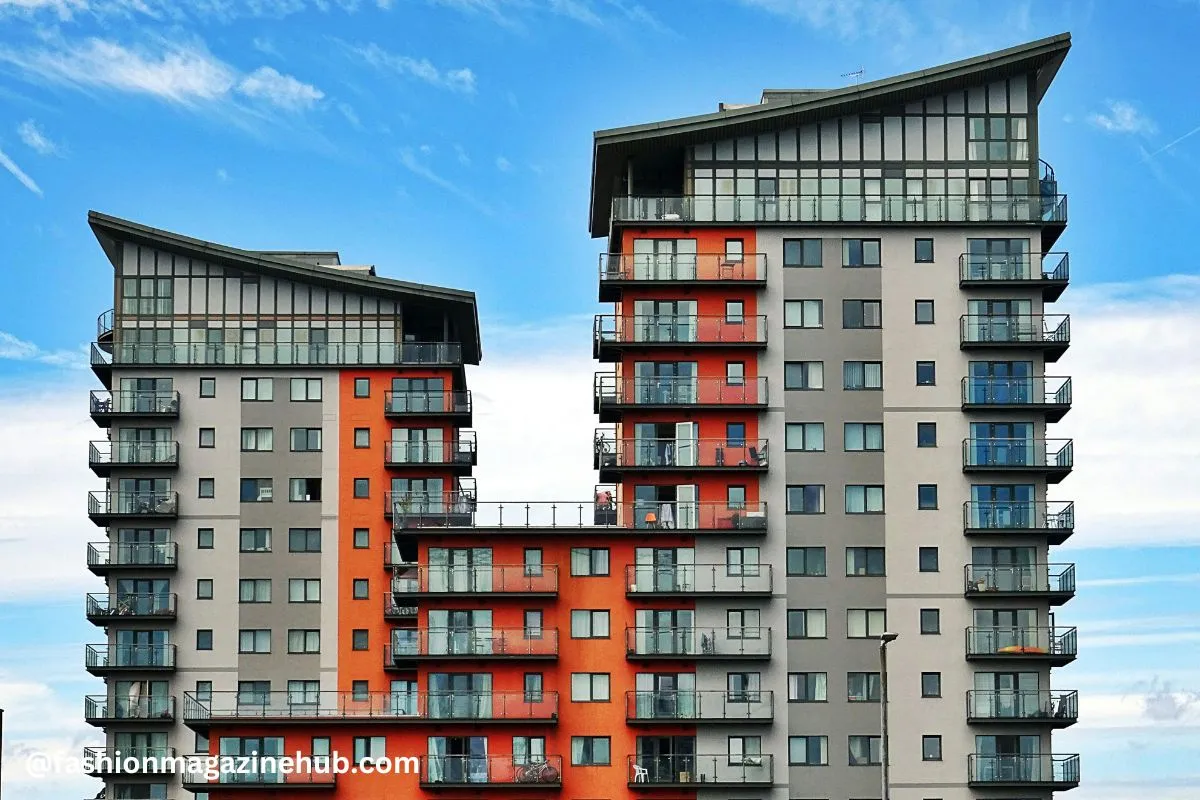Felon Friendly Apartments In Major Cities
Finding suitable housing can be a daunting task for individuals with a criminal record, as the stigma of being a felon friendly apartments often leads to discrimination and limited options. The challenges faced by those seeking felon friendly apartments in major cities are multifaceted, ranging from encountering biased landlords to navigating restrictions on public housing eligibility. This article delves into the intricate web of obstacles that ex-offenders encounter when trying to secure stable housing, shedding light on the systemic barriers that perpetuate their struggles. By examining the various factors at play, we aim to provide insight into the complexities of this issue and explore potential solutions to support individuals looking to rebuild their lives post-incarceration.
Challenges Faced By Felons In Finding Housing
Finding suitable housing can be an uphill battle for individuals with a criminal record. Felons face numerous challenges that make securing a place to live a daunting task. One of the most significant obstacles is discrimination by landlords who are often hesitant to rent to individuals with a criminal history. Many landlords have strict policies against renting to felons, citing concerns about safety and potential liability issues. This discriminatory practice leaves many felons feeling marginalized and rejected in their search for housing.
Discrimination By Landlords
As a felon seeking housing in major cities, one of the most significant challenges you may encounter is discrimination by landlords. Many landlords conduct background checks on potential tenants, and upon discovering a criminal record, they may automatically reject your application without considering other factors. This discriminatory practice can make it incredibly difficult for felons to secure safe and stable housing.
Landlords often have preconceived notions about individuals with criminal histories, assuming they pose a higher risk of causing trouble or not being reliable tenants. This bias can lead to widespread rejection and exclusion from rental opportunities, leaving many felons friendly apartments feeling marginalized and hopeless in their search for a place to live. Overcoming this discrimination requires advocating for fair housing practices and educating landlords about the importance of giving individuals with criminal records a second chance to rebuild their lives.
Restrictions on Public Housing
Public housing is often seen as a potential option for individuals with criminal records seeking affordable and stable housing. However, restrictions on public housing can pose significant challenges for felons looking to secure a place to live. Many public housing authorities have strict policies that prohibit individuals with certain types of criminal convictions from being eligible for public housing assistance. These restrictions vary by jurisdiction but commonly exclude those with violent or drug-related offenses on their record.
For felons, these restrictions can create additional barriers to finding suitable housing options, especially in major cities where the demand for affordable housing is high. The limitations imposed by public housing regulations can further exacerbate the already challenging situation faced by individuals reentering society after serving time in prison. As a result, many felons find themselves caught in a cycle of homelessness or unstable living situations due to the limited availability of public housing options open to them.
Limited Financial Resources
Pose a significant barrier for felons seeking housing in major cities. Upon reentering society, many individuals with criminal records struggle to secure stable employment due to their past convictions. This lack of steady income makes it challenging for them to afford the high costs associated with renting an apartment in urban areas. Additionally, the financial burden of fines, court fees, and other legal expenses further exacerbates their financial constraints.
Without sufficient funds to cover security deposits, application fees, and monthly rent payments, felons often find themselves excluded from accessing safe and affordable housing options. The cycle of poverty perpetuated by limited financial resources can lead to homelessness or unstable living situations, making it even more difficult for individuals with criminal records to reintegrate into society successfully. Addressing this issue requires a multifaceted approach that includes providing financial assistance programs, job training opportunities, and support services tailored to the unique needs of this population.
Lack of Support From Family and Friends
Navigating life after a felony conviction can be an isolating and challenging experience, especially when faced with the lack of support from family and friends. For many individuals reentering society post-incarceration, the stigma associated with being a felon friendly apartments can strain relationships and lead to feelings of abandonment. Family members and friends may distance themselves due to fear, shame, or simply not knowing how to offer support in such circumstances. This lack of emotional and practical support can exacerbate the already difficult task of finding stable housing as a felon.
Without a strong support system in place, felons often find themselves navigating the complexities of securing housing on their own. The absence of familial or social networks that could provide guidance, financial assistance, or even just emotional encouragement can leave individuals feeling overwhelmed and discouraged. In such instances, seeking out resources specifically tailored to assisting formerly incarcerated individuals becomes crucial in overcoming these challenges and building a new foundation for a successful reentry into society.
Benefits of Felon Friendly Apartments
Living in a felon friendly apartment can offer numerous benefits for individuals with criminal records who are seeking stable housing. These apartments provide a second chance for felons to reintegrate into society by offering them a safe and supportive living environment. By giving felons the opportunity to secure housing, they are more likely to find stability in their lives, which is crucial for their successful reentry into the community. This stability can lead to improved mental health and reduced stress levels, as individuals no longer have to worry about finding a place to live.
Reducing Recidivism Rates
Is a crucial aspect of the conversation surrounding felon friendly apartments in major cities. By providing housing opportunities for individuals with criminal records, we are actively contributing to breaking the cycle of reoffending. Studies have shown that stable housing plays a significant role in reducing the likelihood of individuals returning to criminal activities. When ex-offenders have a safe and secure place to call home, they are more likely to focus on rebuilding their lives and reintegrating into society.
Providing Stability and Support For Felons
For many individuals with a criminal record, finding stable housing can be a significant challenge. Felon friendly apartments play a crucial role in providing stability and support for felons as they reintegrate into society. By offering housing options that do not discriminate based on past convictions, these apartments give individuals a chance to rebuild their lives and establish a sense of security.
Having a stable place to live is essential for felons looking to turn their lives around. It provides them with a foundation from which they can focus on other aspects of their rehabilitation, such as finding employment or reconnecting with family and community support systems.
Positive Impact on Communities
When considering the positive impact of felon friendly apartments on communities, it’s crucial to recognize the ripple effect that providing housing for individuals with criminal records can have. By offering a second chance to those who have served their time and are looking to reintegrate into society, these apartments contribute to community safety and cohesion. When former felons have stable housing, they are more likely to become productive members of society, reducing the likelihood of reoffending and creating a safer environment for everyone.
Economic Benefits For Landlords
Landlords who choose to offer felon friendly apartments can reap various economic benefits from this decision. By opening their doors to individuals with criminal records, landlords expand their pool of potential tenants, reducing vacancy rates and ensuring a steady stream of rental income. Additionally, providing housing opportunities for felons can lead to longer tenancies as these individuals often face challenges in finding suitable accommodation elsewhere. This stability can result in lower turnover rates, saving landlords time and money on advertising and screening new tenants.
Strategies For Creating Felon Friendly Apartments
Creating felon-friendly apartments in major cities requires a multifaceted approach that prioritizes both the successful reintegration of individuals with criminal records and the promotion of safe and inclusive communities. One key strategy is to implement fair housing policies that prevent discrimination based on criminal history, allowing individuals with past convictions to have equal access to housing opportunities. Landlords can also consider implementing individualized assessments of applicants with criminal records, taking into account factors such as the nature of the offense, how long ago it occurred, and evidence of rehabilitation.
Collaboration With Community Organizations
Is a crucial aspect of creating felon-friendly apartments in major cities. These organizations play a vital role in bridging the gap between landlords and individuals with criminal records, fostering understanding and support within the community. By partnering with local nonprofits, advocacy groups, and social service agencies, property owners can access valuable resources and guidance on how to effectively integrate formerly incarcerated individuals into their rental communities.
Community organizations often provide training sessions for landlords on fair housing laws, tenant rights, and best practices for working with individuals who have criminal backgrounds. They also offer ongoing support and assistance to both tenants and property managers to ensure successful tenancies.
Education and Awareness For Landlords
As landlords play a crucial role in providing housing opportunities for individuals with criminal records, education and awareness are key components in fostering a more inclusive rental market. It is essential to equip landlords with the knowledge and resources they need to make informed decisions about renting to individuals with felony convictions. Landlords should be educated on fair housing laws and regulations to ensure they do not discriminate against potential tenants based on their criminal history.
Government Incentives and Programs
Government incentives and programs play a crucial role in promoting the availability of felon-friendly apartments in major cities. By offering financial support or tax incentives to landlords who are willing to rent to individuals with criminal records, the government can encourage more property owners to open their doors to this underserved population. Additionally, some local and state governments have implemented programs that provide resources for felons seeking housing, such as rental assistance or housing vouchers.
These initiatives not only benefit the individuals reentering society after serving time but also contribute to reducing recidivism rates by providing stable housing options. By supporting these government incentives and programs, we can work towards creating a more inclusive and supportive community for all individuals, including those with criminal backgrounds.
Rehabilitation and Reentry Programs For Felons
Rehabilitation and reentry programs play a crucial role in supporting felons as they transition back into society and seek stable housing. These programs offer valuable resources such as job training, counseling services, and assistance with finding suitable housing options. By providing felons with the necessary tools to rebuild their lives, rehabilitation and reentry programs contribute to reducing recidivism rates and promoting successful reintegration into the community.
Through these programs, felons are given a second chance to create a positive future for themselves and their families. By addressing underlying issues such as substance abuse, mental health challenges, or lack of education, these initiatives empower individuals to make meaningful changes in their lives.
Success Stories and Examples of Felon Friendly Apartments
When it comes to finding housing as a felon, the search can often feel daunting and discouraging. However, there are success stories and examples of felon-friendly apartments that offer hope and opportunities for individuals looking to rebuild their lives. In cities like Seattle, Washington, programs like the “Second Chance” initiative have been instrumental in providing housing options for those with criminal backgrounds. These initiatives work closely with landlords who are willing to give individuals a second chance by renting to them despite their past convictions.
In New York City, organizations like the Fortune Society have created supportive housing programs specifically designed for formerly incarcerated individuals. These programs not only provide stable housing but also offer support services such as job training, counseling, and community integration.
Case Studies of Successful Programs
In exploring the landscape of felon friendly apartments in major cities, it becomes evident that certain programs have emerged as beacons of hope and progress. One such case study is the “Second Chance Housing Initiative” in Chicago, which partners with local landlords to provide housing opportunities for individuals with criminal records. Through this program, participants receive support in finding suitable housing options and are connected with resources to aid in their successful reintegration into society. By fostering partnerships between landlords and former offenders, this initiative has not only increased access to stable housing but has also contributed to reducing recidivism rates in the city.
Another notable example is the “Fresh Start Housing Program” in Los Angeles, which offers financial incentives to property owners who rent to individuals with criminal backgrounds. This innovative approach has not only expanded housing options for felons but has also encouraged landlords to reconsider their biases and stereotypes about renting to this population. These case studies underscore the importance of collaboration between community organizations, landlords, and government agencies in creating sustainable solutions for reentry challenges faced by individuals with criminal histories.
Testimonials From Felons and Landlords
I’ve had the privilege of speaking with both felons who have benefited from living in felon friendly apartments and landlords who have chosen to give individuals with criminal records a second chance. One former felon, John, shared with me how finding a felon-friendly apartment changed his life. After struggling to secure housing due to his past convictions, he finally found a landlord willing to look beyond his record. John emphasized how having stable housing allowed him to focus on rebuilding his life and ultimately helped him stay out of trouble.
On the other side of the equation, I also spoke with landlords like Sarah who have actively chosen to rent to individuals with criminal histories. Sarah explained that she believes in giving people opportunities for redemption and rehabilitation. She shared stories of tenants who have successfully reintegrated into society and become valuable members of her community. These testimonials highlight the transformative power of providing second chances through felon-friendly housing options.
Impact on Individuals and Communities
The impact of felon friendly apartments on both individuals and communities cannot be overstated. For individuals with a criminal record, having access to housing is often the first step towards rebuilding their lives and reintegrating into society. By providing a safe and stable living environment, these apartments offer a second chance to those who have served their time and are committed to making positive changes in their lives. This support not only helps reduce recidivism rates but also fosters a sense of hope and belonging among formerly incarcerated individuals.
Future Possibilities and Potential For Growth
Looking ahead, the future of felon friendly apartments in major cities holds promising potential for growth and positive impact. As awareness and understanding of the challenges faced by individuals with criminal records continue to increase, more landlords and property management companies are recognizing the importance of providing second chances. This shift in perspective not only benefits those seeking housing post-incarceration but also contributes to safer and more inclusive communities.
With the growing momentum towards criminal justice reform and reentry support programs, there is a real opportunity for expanded collaboration between stakeholders such as government agencies, non-profit organizations, and private sector partners. By fostering these partnerships and implementing innovative solutions, we can create more pathways for individuals with criminal histories to secure stable housing and rebuild their lives. The potential for growth in this area is significant, offering hope for a future where everyone has equal access to housing opportunities regardless of their past mistakes.
Conclusion
In conclusion, the journey towards creating felon friendly apartments in major cities has been a testament to the power of second chances and the resilience of individuals seeking to rebuild their lives. Through success stories, case studies, testimonials, and insights from both felons and landlords, it is evident that providing housing opportunities for those with criminal records not only benefits the individuals themselves but also contributes to the overall well-being of communities. The impact of these initiatives goes beyond just providing shelter; it fosters a sense of belonging, stability, and hope for a brighter future. As we look towards the future, there is immense potential for growth in this area, with opportunities to expand programs, increase awareness, and create more inclusive housing options. By continuing to support and advocate for felon-friendly apartments, we can truly make a difference in the lives of many individuals seeking redemption and a fresh start.
FAQs
Are felon friendly apartments safe to live in?
Yes, many felon friendly apartments prioritize safety for all residents, ensuring a secure living environment
Can I find felon friendly apartments in any city?
While availability may vary, felon friendly apartments can be found in many cities across the U.S..
Will my application be automatically rejected due to my felony record?
Not necessarily. Many landlords consider various factors, so honesty and providing strong references can improve your chances
What should I do if I can’t find any felon friendly apartments in my area?
If you’re struggling to find suitable housing, consider reaching out to local reentry programs or housing authorties for assistance.
Is it possible to have my felony record expunged?
The process of expunging a felony record varies by jurisdiction, and consulting a legal professional can offer guidance.
How can I prove my commitment to being a responsible tenant?
Providing letters of recommendation and demonstrating how you’ve turned your life around since your conviction can show your commitment
Thank you for exploring our Blog! For additional captivating content, feel free to explore the website.


















Post Comment